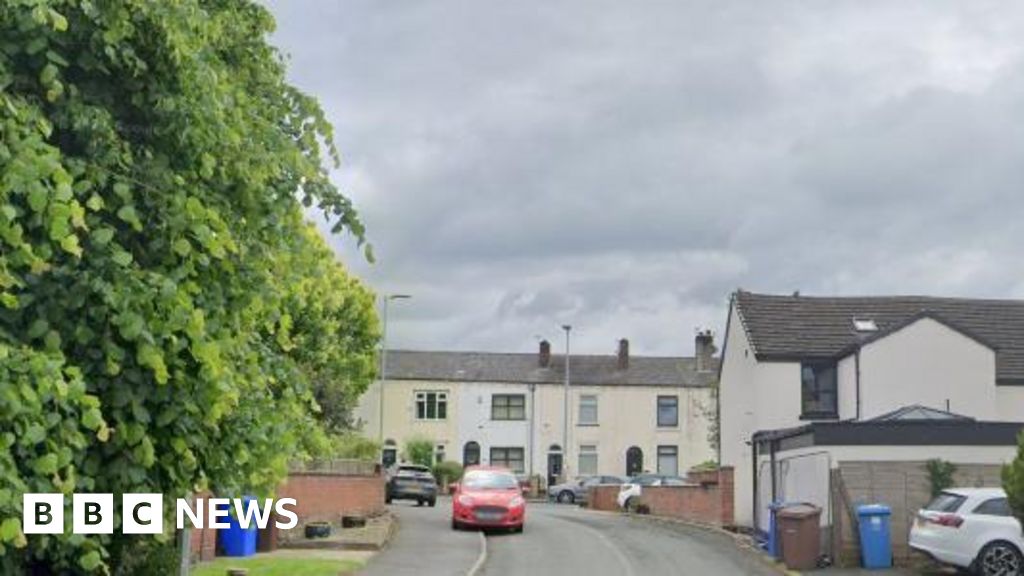
Impact assessments before Storm Bert did not indicate the severity of the flooding that occurred in Wales last month, a senior Met Office figure has said.
First Minister Eluned Morgan was among those saying better warnings were needed after more than 700 Welsh properties were flooded.
Simon Brown, a Met Office director, told MPs on Wednesday relatively dry weather two weeks before Storm Bert “generally meant soil conditions had dried out” suggesting “there wasn’t going to be as much flooding”.
But Mr Brown said the agency was reviewing whether a yellow weather warning it issued ahead of the storm was appropriate.
MPs are holding an inquiry into Wales’ preparedness for flooding, following Storm Bert and Storm Darragh.
Welsh Affairs Committee chair, Newport West and Islwyn Labour MP Ruth Jones, said the two storms appeared to have been “treated quite differently” in Wales.
“Were the warnings that were issued for Storm Bert adequate to allow people to protect themselves?” she asked.
Mr Brown said: “For Storm Bert we had a two week period of relatively dry weather, which generally meant soil conditions had dried out.
“And actually, when we did the impact assessment on Storm Bert, meteorologically there was a lot of rain but the antecedal soil conditions suggested there wasn’t going to be as much flooding.”
Storm Darragh was different as there was lots of wet weather leading up to it and it involved more wind, he added.
Jeremy Parr, head of flood incident risk management at Natural Resources Wales (NRW) told MPs that “extensive damage” was caused by Storm Bert, with over 700 Welsh properties flooded.
He explained that NRW’s role is to “give the signal” to partner organisations in advance.
“But with Storm Bert there was quite a bit of uncertainty and low confidence in the forecast,” he said.
Mr Parr said “that can happen” and forecasting weather patterns is a “complicated thing”.
He added that there was “rapid escalation” with Storm Bert on the Saturday.
‘Olympic size pool’
Mr Parr warned the committee that as the warming of the planet makes extreme weather events more likely, there needed to be places for “huge quantities of water” to go that would minimise the damage to society.
This he called “sacrificial land in some locations to allow to flood so that communities don’t flood downstream, for example”.
“That’s not particularly easy, is it, in terms of that that land is owned by somebody, what’s the value of the land?”
“I remember in Storm Dennis it was eight hundred cubic metres per second which was coming down the river.
“That’s enough water to fill an Olympic size swimming pool every three seconds, continuously coming.
“It’s huge quantities of water, so we do need to use all the levers at our disposal, working across all organisations to work out how to really look after such huge quantities of water in catchments.”
Take more ‘personal ownership’
Mr Parr said people need to take more “personal ownership” over flood risk to their properties and there needed to be an “acceptance of the risk increasing in future”.
Uptake of current flood warning services was low due to “denial” and “impact on insurance,” he told the committee.
“You need to think it might happen, and we all know that when it does happen the speed at which it can happen is incredible, especially now with more and more extreme weather events.
“So one of the things we really encourage people to do is have that conversation in your house, at home – what would we do if it were to happen to us?
“Where would we go to? What property would we move? Should we move our car in advance? What about those valuable things? All of those things people need to think about in advance.”
‘Hindsight a wonderful thing’
On criticism of Met Office warnings, Mr Brown said: “This isn’t just about the warning system, this is also about the responder community and what local communities do in terms of taking action.
“In a Welsh government meeting, two weeks ago, I generally felt the impacts from that meeting were well understood by the responder community, they were well prepared to respond, and the local council Rhondda Cynon Taff actually said they prepared like it was an amber (warning).”
But, he added: “Hindsight is a wonderful thing and we will certainly look at whether that weather warning was appropriate.”
Additional reporting by Adrian Browne




